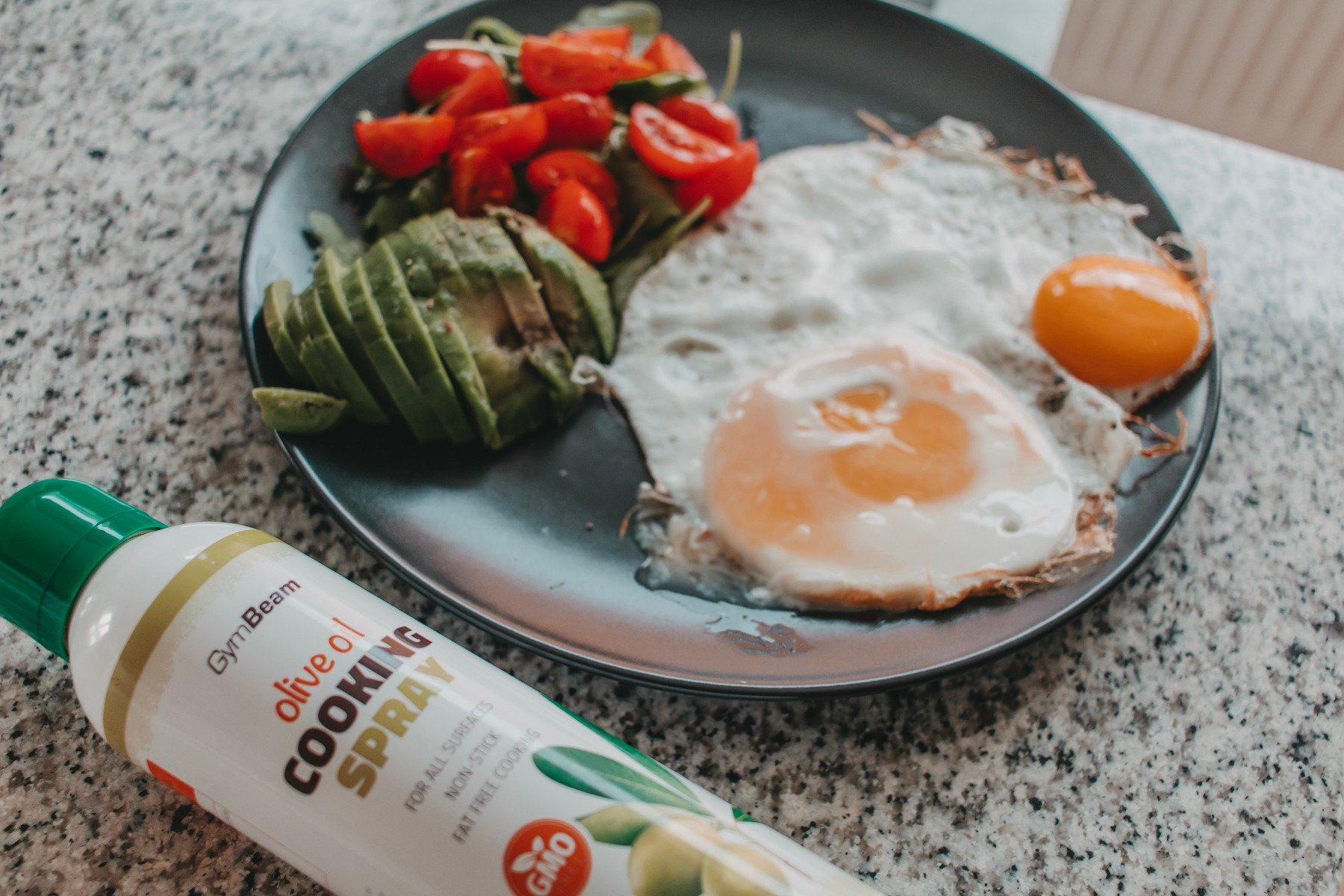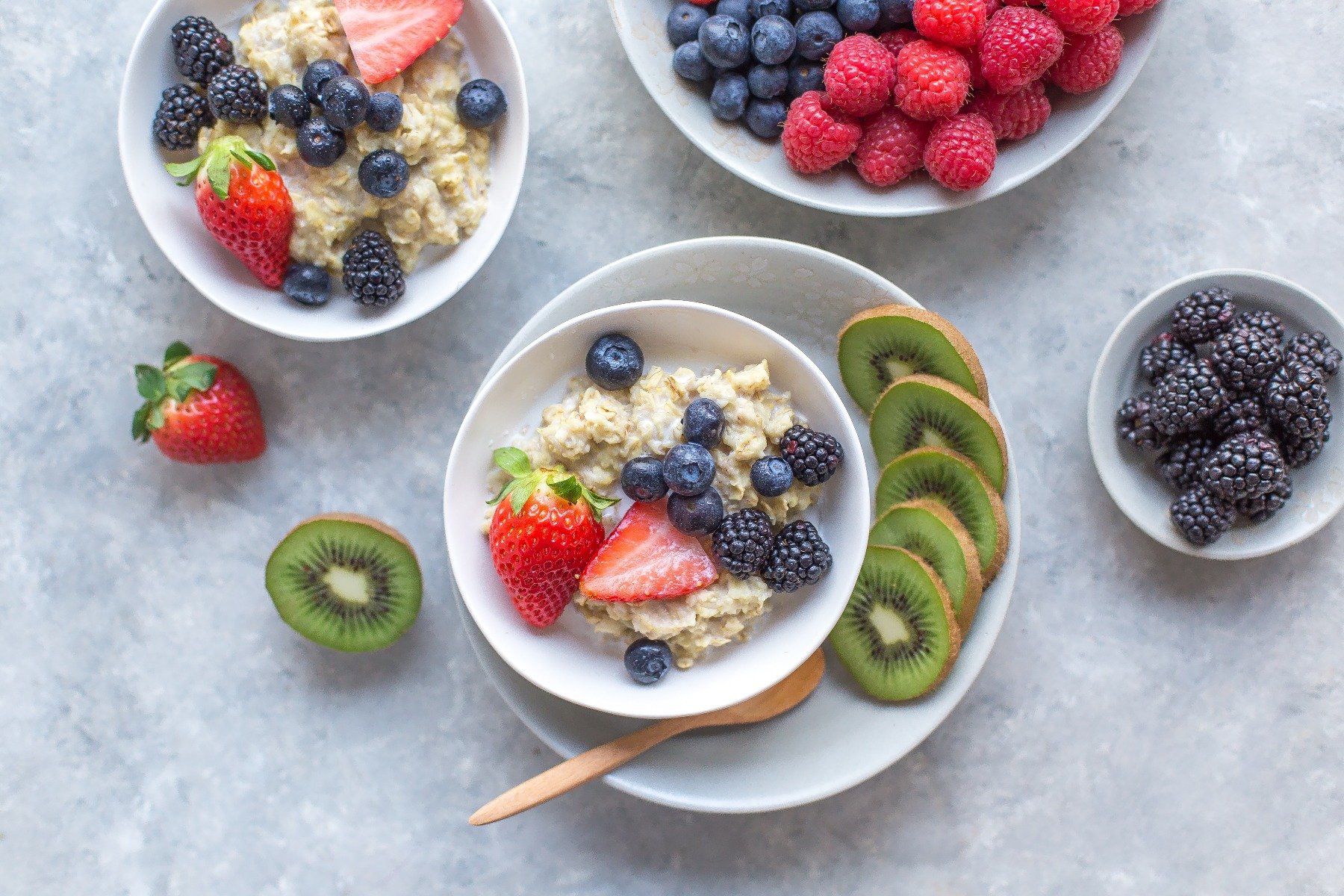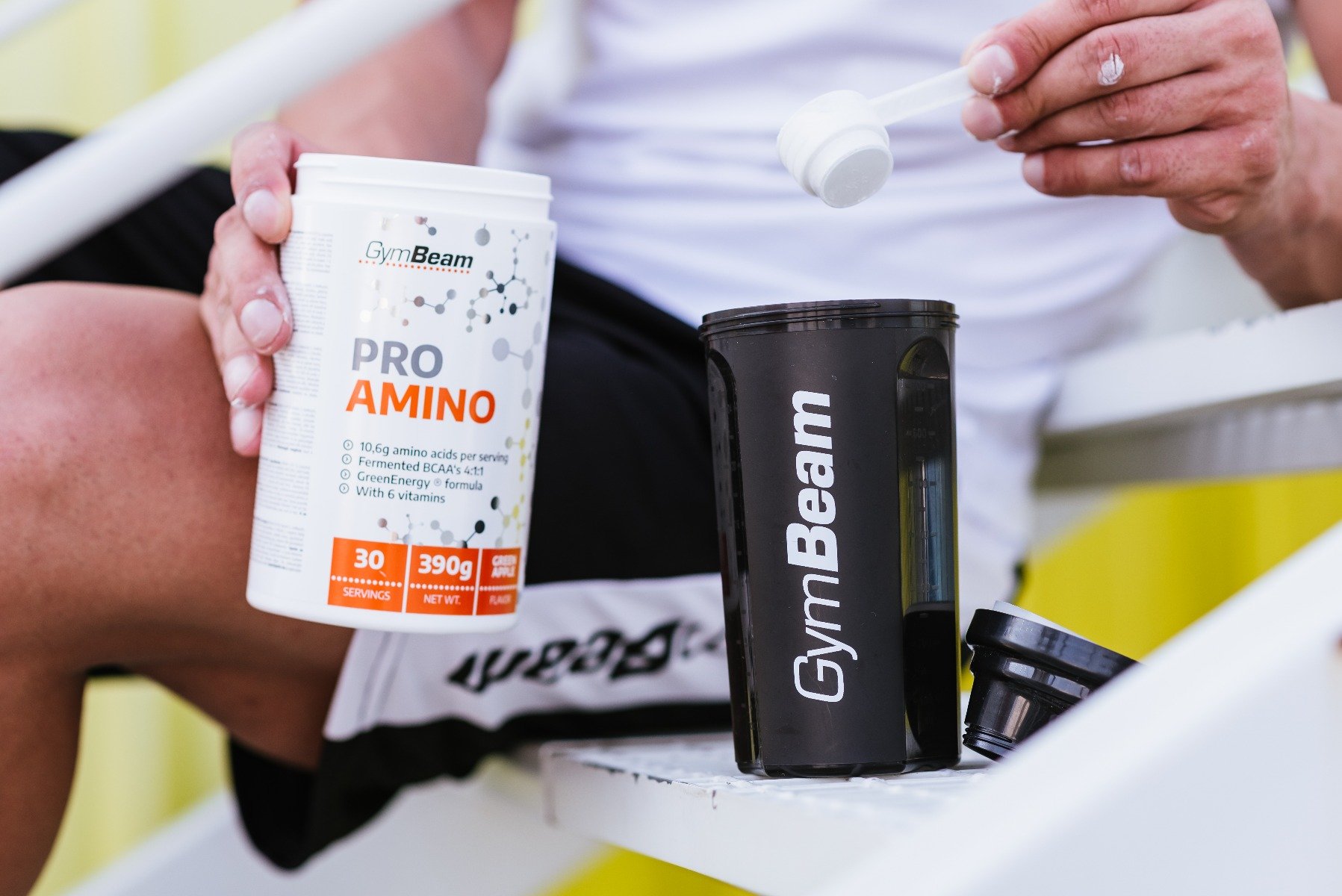Table of Contents
Have you already tried getting rid of fat without losing your hardly gained muscles? Surely, it is not easy, but it is definitely possible. All you need to do is to adjust your diet and training to your fitness goal. There are too many mistakes you are likely to make because of the lack of knowledge. In this article, you can get to know our 7 pieces of advice thanks to which you can say farewell to your fat and be able to boast only about your lean muscle mass.
1. Don’t forget to get enough protein
When you are trying to reduce the body fat and sustain the muscle mass, it is very important to make sure you get a sufficient amount of proteins. Proteins belong to one of the most crucial nutrients and they are significant during the fat burning process due to several reasons [15]:
- they change the levels of hormones – proteins increase the level of “satiety” hormones, for instance GLP-1, the YY peptide, and cholecystokinin, at the same time reduces the level of ghrelin, which is a hormone of hunger.
- it has a higher thermic effect – after a meal, a part of calories is used for processing the food and this process is known as the thermic effect. Proteins have it higher than fats or carbohydrates. Approximately 20 – 30 % calories from proteins are burned during the digestion and metabolism of proteins.
- you burn more calories – a higher thermic effect and other facts are the reason why the higher intake of proteins speeds up the metabolism during whole day, even during your sleep. Various studies have shown that a higher protein intake is the reason why we burn about 80 – 100 calories more every day.
Studies suggest that protein should account for 30 % of the calorie intake in case of weight reduction. It was proven by the results of one study which involved men suffering from obesity. With a 25 % proportion of calories from proteins, the compulsive thoughts about food decreased by 60 % and the cravings for an evening eating decreased by 50 %. Female participants in another research increased their protein intake to 30 %. According to the results, they daily consumed about 441 less calories and lost 5 kg in 12 weeks. Are you impressed by the results of the research and would you better imagine the proportion of proteins in grams? If you consume 2,000 calories per day, 30 % of them is approximately 150 g of proteins. You can easily count the appropriate amount of proteins by multiplying your daily intake of calories by 0.075. [3]

The protein intake is not important only during the day, since our digestive system works also at night and in order to maintain your muscles, you need to prevent hunger and cramps. You can get rid of hunger at night, for example, by consuming an easily digested protein, such as casein. It is characteristic for containing a low amount of carbohydrates, high amount of proteins and also calcium, which is important for the production of melatonin that supports sleep. The organism consumes it as energy, so you don’t need to be afraid it will be stored in your body in form of fat. [2] Would you like to find out more about this less known source of protein? Read our article Casein, casein proteins and everything you need to know about them.
You might be interested in these products:
2. Be careful with a radical reduction of calories
You may find it sensible to radically reduce the calorie intake in order to achieve the fat reduction, but this way may lead you completely elsewhere. A radical diet is very close to hunger strike and lack of energy from food will cause your body to start taking the energy from the muscle tissue. In addition to muscle breakdown, also the intake of vitamins and other nutrients will decrease significantly, resulting into the poor muscle regeneration after a workout. A rapid reduction of calories will be the cause of the feeling of hunger, you will start being impatient and will have constant thoughts of food. However, hunger is not the only problem that can arise due to the sudden and rapid decrease of daily intake of calories. Another frequently occurring consequences of rapid diets are also [1] [3] [4]:
- metabolism slowdown
- worse quality of sleep
- lethargy, fatigue
- water retention
- decreased libido and reproductive functions

In case of the caloric intake decrease, it is important it does not cause a shock to your organism. You should start with the calorie restriction in moderation, and for a start, it is advisable to cut down only 200 – 500 calories from a daily intake. [1]
3. You should drink enough fluids
Fluids can reduce the feeling hunger, your stomach is fuller which prolongs the feeling of saturation. A research from 2014 has proven that drinking 0.5 litres of water approximately 30 minutes before breakfast, lunch and dinner reduces the feeling of hunger and thus also the overall weight. Average hydration takes care, among other things, of removing the harmful substances from the body, it supports proper functioning of kidneys and also restores the digestive system. A sufficient intake of fluids is important also for the metabolism of fats and carbohydrates. The process of fat digestion is called lipolysis, and in the first phase, water molecules affect the triglycerides that break down into glycerol and fatty acids. Another reason for replenishing fluids for athletes and active people is their impact on functionality of cartilages and their mobility. In addition, they are important also for the proper functioning of the lungs, heart and other organs, they reduce fatigue and muscle cramps. [5]
Are you trying to increase your intake of fluids during the day and you would like some easy solutions? [6]
- Carry a bottle of water with you and refill it regularly.
- Always keep a full glass of water on your workplace desk.
- Always keep a glass of water by your bed so you can easily refill the fluids at night or in the morning.
- Replace a glass or sweetened soda for a glass of water.
- Try to drink more than six glasses of water during the day.
4. Don’t do too much cardio
Did you decide to incorporate more running or cycling into your training plan? Increased emphasis on cardio can trigger a sequence of reactions that have effect on maintaining the muscle mass. More cardio means shorter regeneration time, therefore it may very easily happen that your body will not get a sufficient chance to recover. As a result, it will begin to stagnate in strength and performance, which is connected with the ability to build and maintain muscle mass while reducing fat. Doing cardio workouts excessively also leads to overtraining, injuries, fatigue and mood swings. Running is an appropriate activity in an adequate amount, but too much running increases cortisol levels, and this has a negative effect on immunity. Frequent increased levels of cortisol also affect the loss of fat and muscle mass. [4] [7] [8] Do you consider overtraining as a myth or do you want to learn more about it? Read our article – Overtraining – fact or myth?

It is difficult to define how much cardio is too much because it depends on several factors, such as its frequency, intensity or length. A suitable activity during fat reduction while maintaining muscle mass may be for example walking. A 30 – 90 minute walk can help you burn fat while not having a significant effect on your body’s regeneration. [4]
5. Be careful with carbohydrates
Adequate reduction of fat deposits and muscle retention are influenced by the proportion of carbohydrates in diet. Excessive carbohydrate doses will turn them into fat and cause their retention in the body, but on the other side, a rapid reduction of carbohydrates intake is not the best solution either. Excessively low carbohydrate intake is not necessary in order to reduce weight, since it can cause uneven muscle retention and decrease performance during a workout. A research from 2003 confirmed the effect of carbohydrates on fat reduction and muscle retention. Female participants followed a 10-week schedule during which they consumed 1,700 calories per day. They were divided into two groups, the first having a carbohydrate to protein ratio of 1.4:1, for example for 125 g of protein there would be 171 g of carbohydrates. The second group consumed 3.5 times more carbohydrates than proteins, and thus approximately 437.5 g carbohydrates per 125 g proteins. The results showed that the 1.4:1 ratio group lost more fat and at the same time less muscle mass than the 3.5:1 ratio group. [8]
You can achieve the desired effect also by using a less complicated ratio. The ideal carbohydrate to protein ratio for muscle mass retention and fat loss is 2:1. For example, it represents 250 g of carbohydrates for a daily dose of 125 g of protein. In certain cases, the timing of carbohydrates is also important, it holds true mostly for athletes and people with a demanding training, but it does not have a major impact on an ordinary person. Determining the ideal time to support fat burning is difficult because the results of studies are too divergent. During the day, it is important to consume carbohydrates in the morning to get energy for daily activities and also after a training to resupply energy and nutrients. The most important factor is the source of carbohydrates, so you should prefer complex carbohydrates with fibre content, such as oatmeal. The overall carbohydrate intake is more important than their exact timing unless you are, of course, in preparation for a competition. If you consume carbohydrates in moderation, you don’t have to worry about the right time to take them. [8] [2] [14] Are you thinking about the ideal breakfast thanks to which you can supplement carbohydrates and proteins for the optimal functioning? This healthy combination includes instant oatmeal, in which you can take approximately 15 g of proteins and 53 g of carbohydrates.

6. Don’t forget about amino acids
Branched-chain amino acids are useful for maintaining the muscle mass and reducing fat. BCAA is an abbreviation that stands for three essential amino acids – leucine, isoleucine and valine, which are the basic building blocks of muscles. They make up approximately one third of muscle protein and are used by the body to repair and rebuild muscle fibres. Caloric deficit causes that the body receives less nutrients for adequate regeneration. BCAA can provide tissue repair during this process, and thanks to that promote protein synthesis for muscle recovery after exercising. According to a study carried out in 2017, consumption of 5.6 g of BCAA had a significant effect on protein synthesis. Those participants who consumed BCAA after a weight training had a 22 % increase in protein synthesis. Other studies from 2012 and 2014 focused on changes in protein synthesis in case of people who consumed whey protein with a BCAA dose. The results showed a 50 % increase in protein synthesis, indicating that BCAAs are important, but they are most effective during the consumption of other amino acids from the protein. Another advantage is their low caloric value, so you don’t need to be afraid that the caloric value will increase due to taking them. One study carried out in 2012 demonstrates their importance in maintaining muscle mass and strength. The results of this study show their main benefit in reducing the muscle soreness and improving the regeneration of muscle functions. [9] [10] [11]
All necessary information about BCAA amino acids and their importance for the body can be found in the article – BCAA and their effects on the body.

7. You won’t maintain your muscles without the weight training
If your goal is not only to lose fat, but also to maintain your muscles, a weight training should definitely be a part of it. Without it, you may get rid of the excessive fat, but you will also lose the muscle mass which you will have to regain. A scientific study from the University of West Virginia compared the results of a low-calorie diet and different types of training. One group did cardio activities, such as walking, running or cycling four times a week. The task of the second group was to do a weight workout three times a week, without any cardio trainings. After three months, the results were checked and participants in both groups were found to lose their weight. The group that focused on the cardio training lost 12 kg of fat and 4.1 kg of muscle mass. Participants who did weight workouts reduced their weight by 14.5 kg of fat without almost any muscle mass loss. [12]
Another similar research has studied the importance of strength training, cardio training and lifestyle change. The participants were divided into three groups: strength training + diet, cardio training + diet and diet with no training. According to the results collected after 8 weeks of exercise, participants in all groups lost about 9 kg of fat, there was no significant difference in this respect. However, there was a difference in muscle mass loss between the three groups. The group with diet only and the group with cardio training + diet lost twice the amount of muscle mass compared to the participants with strength training. [12] [13]

If you are already losing weight and getting rid of the excessive fat, it would be a shame to lose your hardly gained muscles. You should think of an adequate intake of proteins, amino acids and fluids, control your carbohydrate intake, and also adjust the type of workout. These tips in the article are not difficult to follow and yet they will have a major impact on your results. We hope that this article has inspired you and that you have enriched your knowledge regarding the fat reduction. If you liked it and you would like to recommend it to your friends, you can support it with a like and share.
[1] HOW TO LOSE FAT WITHOUT LOSING MUSCLE – https://gasparinutrition.com/how-to-lose-fat-without-losing-muscle/
[2] Josh Bryant - 11 Fat Loss Rules: What To Consider While Keeping Muscle! – https://www.bodybuilding.com/content/11-fat-loss-rules-what-to-consider-while-keeping-muscle.html
[3] Kris Gunnars - Protein Intake – How Much Protein Should You Eat Per Day? – https://www.healthline.com/nutrition/how-much-protein-per-day
[4] How To Lose Fat Without Losing Muscle (Burn Fat, Not Muscle) – https://www.aworkoutroutine.com/how-to-lose-fat-without-losing-muscle/
[5] Jennifer Huizen - Can water help you lose weight? – https://www.medicalnewstoday.com/articles/322296.php
[6] Gina Shaw - Water and Your Diet: Staying Slim and Regular With H2O – https://www.webmd.com/diet/features/water-for-weight-loss-diet#1
[7] Obi Obadike - Ask The Ripped Dude: How Much Cardio Is Too Much? – https://www.bodybuilding.com/content/ask-the-ripped-dude-how-much-cardio-is-too-much.html
[8] K. Aleisha Fetters - How to Lose Fat Without Losing Muscle – https://www.vice.com/en_us/article/d3ewwy/how-to-lose-fat-without-losing-muscle
[9] MICHAEL TURNER - lose fat without losing muscle: 8 expert-backed tips – https://dioxyme.com/lose-fat-without-losing-muscle/
[10] Glyn Howatson, Michael Hoad, Stuart Goodall, Jamie Tallent, Phillip G Bell & Duncan N French - Exercise-induced muscle damage is reduced in resistance-trained males by branched chain amino acids: a randomized, double-blind, placebo controlled study – https://jissn.biomedcentral.com/articles/10.1186/1550-2783-9-20
[11] ANTHONY J. YEUNG - 7 WAYS TO BURN FAT WITHOUT LOSING MUSCLE – https://www.muscleandfitness.com/workouts/workout-tips/7-ways-burn-fat-without-losing-muscle
[12] Christian Finn - What 15 Studies Say About How to Lose Fat Without Losing Muscle – https://muscleevo.net/how-to-lose-fat-without-losing-muscle/
[13] Allan Geliebter, Margaret M. Maher, Laura Gerace, Bernard Gutin, Steven B. Heymsfield, Sami A. Hashim - Effects of strength or aerobic training on body composition, resting metabolic rate, and peak oxygen consumption in obese dieting subjects – https://pubmed.ncbi.nlm.nih.gov/9280173/
[14] Ryan Raman - Is There a Best Time to Eat Carbs? – https://www.healthline.com/nutrition/best-time-to-eat-carbs
[15] Kris Gunnars - How Protein Can Help You Lose Weight Naturally – https://www.healthline.com/nutrition/how-protein-can-help-you-lose-weight


Add a comment